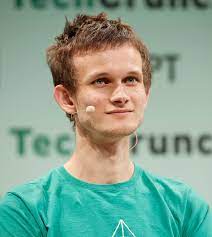Forbes investigates Craig Wright: Whether he is Satoshi Nakamoto is no longer that important
Original Author: Michael del Castillo
Original Source: Forbes
Original Title: Satoshi Or Not, Here He Comes
Compiled by: 0x11, Foresight News
In the fall of 2012, long before most of the world had heard of Craig Wright, this Australian computer scientist quietly submitted his first patent related to the newly created Bitcoin, when a single Bitcoin was worth only $10. The following year, an exchange called Coinbase raised $5 million to "make Bitcoin easier for the average consumer to use." A year later, in 2014, Bitcoin Magazine co-founder Vitalik Buterin published a paper describing a new type of blockchain called Ethereum, praising the pseudonymous creator of Bitcoin, Satoshi Nakamoto, for his breakthroughs in cryptography.
While the nascent crypto industry was only focused on the license for the Bitcoin code (which allowed anyone to use the software under copyright law), Wright was already seeking patent protection to leverage this new technology. By December 2015, when Wright was identified as a candidate for Satoshi Nakamoto by two news organizations, he had applied for two patents and was the chief scientist of a Swiss company called nChain, which had also applied for three patents.
Until recently, a heated debate has surrounded whether the 52-year-old Wright is indeed Satoshi Nakamoto, with his Bitcoin wallet holding $33 billion worth of cryptocurrency (with the current Bitcoin price around $30,000), and his blockchain invention allowing anyone in the world to send cryptocurrency to others without relying on banks. According to data from Pitchbook, digital currencies have helped entrepreneurs raise $89 billion. Next year, Wright will go to the High Court in the UK to prove he is the inventor of Bitcoin.
"I created Bitcoin," Wright told Forbes from his office in London.
But the focus of this debate may soon shift. Regardless of whether Wright can prove he invented Bitcoin, if he can leverage the 800 granted patents and 3,000 pending patents he holds across 46 jurisdictions in the way he wants, he will soon profit immensely from the wave of widespread blockchain applications. Everything from the $1 trillion cryptocurrency market to some of the largest companies in the world will be affected. Notably, Wright is adopting legal strategies to set precedents for software released under loose copyright rules (open source), including the widely used open-source JavaScript framework (React) by Meta, Microsoft's Visual Studio for editing code, and Linus Torvalds' Linux operating system, which are associated with 40% of the entire internet.
"I don't like Silicon Valley; they are a cancer on this world." Wright said, "They can steal anything they want." He paused, seemingly reconsidering his words, and added, "They are the cancerous hemorrhoids on the world's backside."
Dr. Craig Steven Wright was born in 1970 in Brisbane, Australia. His mother entered data on early computers using punch cards, and his father served in the Vietnam War. Wright is a polymath, with over 20 degrees listed on his personal website, ranging from a master's in statistics and forensic psychology to a diploma in art appreciation. Over the years, the intellectual property he has studied (including various ways of using blockchain technology) has been transferred in trust and corporate shell games.
He said that in 1997, he established an Australian trust company called Craig Wright R&D. This company originally owned Blacknet, which he described as a precursor to Bitcoin. In 2002, he transferred this research to another trust, Ridges Estate.
In the middle of 2000, while pursuing a graduate degree in international trade and business law, he met American security expert Dave Kleiman in an online forum. Although Wright claims he only met Kleiman, who passed away in 2013, once while drinking, the two collaborated on many projects, including a book on investigating computer hacking behavior that Wright co-authored with others and Kleiman edited in 2007. Allegedly, an email copy provided to Gizmodo in 2015 seems to show Wright requesting Kleiman's help in editing a paper describing Bitcoin. Wright refused to disclose whether the email was genuine, but he claimed that the Gizmodo article was based on forged documents provided by Kleiman's estate and insisted that he created Bitcoin himself. The law firm representing Kleiman's estate, Boies Schiller Flexner, has not responded to requests for comment.
On October 31, 2008, a group (or individual) using the pseudonym Satoshi Nakamoto published a white paper describing a "peer-to-peer electronic cash system"—Bitcoin, which allows online payments to be sent directly from one party to another without "going through a financial institution." When the Bitcoin code was released to the Sourceforge software repository in January 2009, Nakamoto added a note allowing anyone to use it without restriction under the MIT license terms. Its copyright was designated as Copyright (c) 2009 Satoshi Nakamoto.
Wright said, "The MIT license is very friendly to intellectual property." He allocated the intellectual property related to Bitcoin among four Australian companies he controls, each with different business focuses. In an email, he wrote that Information Defense received the intellectual property related to the Bitcoin database; Integyrs received his cryptographic research; Greyfog received IP related to the Internet of Things, while Strassen received research related to the so-called sharding network.
Although audit documents from 2010 showed that no patents had been "submitted," Wright stated that he began efforts to change that situation in the same year. His first Bitcoin-related patent was a method by which multiple users could split access codes into a blockchain registry to obtain legacies and corporate records, which was granted by the U.S. Patent and Trademark Office in 2017. In December 2010, Nakamoto wrote his last public article, beginning with: "There is more work to be done…"
Wright said that in early 2011, his first wife Lynn and Kleiman co-founded W&K Info Defense to develop blockchain-related intellectual property. He also renamed Craig Wright R&D to Tulip Trust, which would continue to play an important role in his business strategy. Although the actual composition of Tulip Trust remains a mystery, Wright stated that Tulip "owns companies and only owns companies."
On December 13, 2010, the creator of Bitcoin logged in using the pseudonym Satoshi Nakamoto, which would be one of his last public acts, changing the license from "Copyright (c) 2009-2010 Satoshi Nakamoto" to "Copyright (c) 2009-2010 Bitcoin Developers." A few days later, Andresen posted a message: "With Satoshi's blessing, I will begin to take a more active role in managing Bitcoin, although I am very reluctant."
The following spring, Nakamoto sent what is believed to be his last private message before disappearing. "I have turned to other things," he wrote in an email to former Bitcoin core developer Mike Hearn, "It is a good choice to hand over to Bitcoin core developers Gavin Andresen and others." Hearn confirmed that such an email indeed existed.
A colorful legend emerged: to make Bitcoin truly decentralized, it could not have any single point of failure, so Nakamoto wrote the code as a gift to the world and entrusted a group of open-source developers to help it grow into a global currency that does not rely on banks or governments. Nine months later, Gavin Andresen moved the code repository to Github.
Contrary to the clues sent to Hearn and Sourceforge, Wright claims he disagreed with the transfer of power. He stated that a new batch of Bitcoin developers, including the former main maintainer of the code repository Wladimir van der Laan, circumvented his control of the repository, moved the software to Github, and changed the license. Wright claimed that Bitcoin was essentially stolen. "I didn't expect them to do such things to bypass my administrative control." "They built a whole new site and then kicked me out." In an email to Forbes, van der Laan denied moving the code repository and also denied changing the license. "This was done by Satoshi," he wrote.
From start to finish, Wright's work on intellectual property has continued.
In April 2013, Kleiman passed away, and his brother Ira inherited his estate. W&K owned the intellectual property related to Bitcoin, as well as approximately 1.1 million Bitcoins (currently worth $33 billion) obtained through mining—although there is no indication that they possessed Satoshi's private key, which is required to transfer those assets.
In 2015, Wright founded the DeMorgan Group, based in Sydney, which claimed to be a "next-generation banking" alternative currency R&D company. He transferred ownership of most Bitcoin-related work to DeMorgan and announced that the company was eligible for a subsidy of up to $54 million established by the Australian Taxation Office to stimulate innovation. "This subsidy will enhance the company's cash position," he stated at the time, "and is an important source of funding for our development."
With business growth that summer, Wright signed an agreement with former gambling entrepreneur Stefan Matthews, who purchased DeMorgan's intellectual property for AUD 1.5 million and transferred it to a UK company now known as nChain. The nearly AUD 15 million deal also included a five-year service agreement worth AUD 3.5 million with Wright and granted 37% of the new company's shares to Wright and his second wife Ramona. The deal with Matthews also transferred about 90% of Wright's intellectual property control to nChain. Later, the major shareholder of nChain was found to be Robert MacGregor, the founder of the Canadian payment company nTrust. Forbes attempted to contact him through two email addresses associated with MacGregor, but both attempts failed.
On December 8, 2015, after reports about anonymous leaks were published by Wired and Gizmodo, Wright became a controversial public figure in the crypto world, claiming he was likely Satoshi Nakamoto, or as Wired put it, "an excellent con artist who desperately wants us to believe." Wright stated: "The articles from Wired and Gizmodo are based on information from Ira Kleiman. To fabricate a story about his brother that never happened, Ira forged documents, made false statements, and used multiple emails to impersonate several people to contact reporters. He did this to obtain money that does not belong to him."
nChain chairman Matthews stated that Wright's new fame changed nChain. While he always envisioned the company as a long-term software and intellectual property developer, MacGregor saw a Steve Jobs-like figure in Wright, who could take the company to the stage before selling it to increase its value. "He wanted to sell everything to Silicon Valley," Wright agreed, "and before he did that, he couldn't be bothered to ask me about my views on Silicon Valley."
Wright spoke at multiple events, including a panel discussion with another Satoshi "suspect," Nick Szabo, where both he and Matthews claimed that many blog posts identifying Wright as the author were actually written by MacGregor. The strategy was to hold a series of "proof meetings" to convince the world once and for all that Wright is Satoshi Nakamoto. In April 2016, entrepreneur Jon Matonis and software developer Andresen claimed to have witnessed Wright signing a message to the Bitcoin blockchain using a cryptographic signature associated with Satoshi; the two subsequently publicly stated that they believed his claims.
Despite Wright seemingly using Satoshi's signature, doubts about its authenticity quickly surfaced. A report from Vice indicated that the signature could have been forged in multiple ways. Wright's subsequent written explanations drew rebuttals from security researcher Dan Kaminsky, who stated that the messages could have been sent without knowing Satoshi's private key (a type of password).
In an apology on his website, Wright seemed to acknowledge that the evidence was not convincing, but he insisted he is Satoshi Nakamoto. "As events unfolded this week, when I was preparing to release proof of access to the earliest keys, I broke down. I didn't have the courage. I couldn't," he wrote. "From the start, my qualifications and character were attacked. When these accusations were proven false, new accusations had already begun."
To date, Wright has not publicly proven again nor transferred any Bitcoin from Satoshi's account. The upcoming court hearing in the UK may require one of those methods. Matonis claimed that Wright's articles can still be found on his Medium site, but this year, Andresen added a note to his original statement from May 2016, stating that "trusting Craig Wright like I did was a mistake."
Matthews said that in the following months of 2016, Wright spent most of his time at home, occasionally sending him some invention ideas. Hostility between Wright and MacGregor escalated. "I had to act as a referee between some incredible arguments between the two of them," Matthews said. "MacGregor told me he didn't want to have anything to do with Craig Wright or nChain anymore." Matthews stated that he formed a private equity fund in Malta to buy MacGregor's shares, and by November 2016, MacGregor left the company.
Matthews began seeking new funding.
Before long, he found former billionaire Calvin Ayre, who briefly appeared on the U.S. Immigration and Customs Enforcement's wanted list for running the Bodog gambling business, which was accused of operating illegally in Maryland. "We considered ourselves completely legal," Ayre said, "once, it was one of the largest online gaming companies in the world." In July 2017, he pleaded guilty to a lesser charge and left the company to become a private investor again. Matthews, who managed Ayre's venture capital work, stated that he met Wright in 2000 when the inventor helped his gambling industry employer Centrebet with a security audit. Matthews believed the two would hit it off. "He brought Wright in," Ayre said, "telling me there was a guy I had known since 2006. I knew he was Satoshi. So we wanted to come and talk to you because he needed some help."
Matthews flew in from his home in Manila, and Wright flew in from Australia to meet at Ayre's penthouse rooftop in Vancouver. The three spent two days drinking red wine, getting to know each other, and having a great time. "When I introduced Calvin and Craig, from the moment they locked eyes, there was an attraction," Matthews said. After this meeting, Ayre invested in nChain. "Stefan and I pulled him out," Ayre said, "built some infrastructure around him, and created a complete ecosystem."
If nChain was the foundation of the ecosystem, then they began installing the pillars and beams next. In August 2017, Ayre acquired the cryptocurrency news site CoinGeek. In 2018, Wright, Ayre, and Matthews launched the Bitcoin fork Bitcoin Satoshi Vision (BSV), a cryptocurrency based on a version of Bitcoin prior to 2017 that excluded upgrades that made Bitcoin more private. "You can mix, you can transfer, with no records," Wright described transactions in BSV.
According to data from CoinGecko, BSV achieved some success, reaching a market capitalization of $767 million, ranking 54th in the cryptocurrency market cap leaderboard. Wright said he owns a "small amount" of BSV, Ayre said he owns some, "but not a lot," and Matthews did not respond to questions about his BSV holdings.
In April 2019, Wright registered two copyrights with the U.S. Copyright Office—one for the Bitcoin white paper and another for the Bitcoin software. The following month, the agency issued a statement saying, "Regarding the two registrations granted to Wright, the Copyright Office will not investigate the truth of any claims; during the review process, the Copyright Office noted the well-known pseudonym 'Satoshi Nakamoto' and asked the applicant to confirm that Craig Steven Wright is the author and rights holder of the registered works. Wright confirmed this."
If Wright wants to convert that IP into cash, it is likely to be through nChain. nChain is registered in Zug, Switzerland, which is friendly to cryptocurrencies, but is based in London, where Wright resides. Nchain's primary revenue source is royalties and consulting fees from its granted licenses. Although primarily funded by Ayre, Wright stated that a private equity fund based in Liechtenstein is also an investor, and his wife is the "trustee." When asked to clarify whether nChain has a trustee or if he was actually referring to her helping operate Tulip Trust, Wright stated that the trust is "related to" nChain.
"I deliberately act as if I have no foresight or insight," Wright said with a smile when discussing the internal workings of the trust. "Once I know something, someone will want me to take it to court, so I make sure I don't know." After a long pause, he added, "I deliberately don't know." Documents filed by the Kleiman estate against Wright indicate that at least three Tulip Trusts exist.
Despite having 260 employees, Wright claims that this will be nChain's first year of profitability. Chief Intellectual Property Officer Robert Alizon stated that the company has five individual licensees and expects to have 20 by the end of the year. He said his main goal is to help entrepreneurs build profitable businesses on the BSV blockchain, but nChain also lays the groundwork for charging developers who create projects for other applications using blockchain. "We want to essentially support the ecosystem that chooses BSV," Alizon said. "Clearly, if people are competing without paying fees, we need to start regulating that. Whether you are operating within BSV or outside of BSV, you have the right and must obtain a license from nChain." David Pearce, a lawyer based in Birmingham, UK, who tracks 440 nChain patents in Europe alone, stated, "Many of these patents are valid, for better or worse." Although he has challenged three nChain patents on behalf of Bitcoin consultant Arthur van Pelt, he believes that most other patents have been "validly granted by the European Patent Office, which is generally considered one of the most difficult patent offices to apply to in the world."
But there is a problem. Although nChain holds 765 patents in jurisdictions such as the U.S., Europe, and China covering topics like tokenization, identity management, and micropayments, Forbes could only find one company paying for a BSV license: Unisot, a supply chain company based in Oslo, which paid a one-time licensing fee. Among other licensees, e-Livestock is developing software that allows people in developing countries to use farm animals as collateral, and the company stated it has not paid licensing fees for years. Ed Rivera of the blockchain-based film studio MyMovies stated that Wright granted him rights to use streaming and encryption patents, although Wright told Forbes that this was not the case. The provincial government of Bataan in the Philippines signed a memorandum of understanding with nChain in December, which could lead to a formal agreement to jointly develop patents co-owned with the company.
Smart Ledger, based in New Hampshire and built on BSV, has its chairman Bryan Daugherty stating that he does not have a license and does not believe his company needs a license to operate, but feels protected by nChain. "They are protecting us," he said, "hoping to create a good, friendly atmosphere for the emergence of this technology, beyond the crypto casino we see today."
Behind the scenes, while Wright's team is building its BSV ecosystem, a complex legal battle is underway that could affect the future of the industry. In February 2018, the estate of Dave Kleiman sued Wright in the U.S. District Court for the Southern District of Florida, accusing him of "conspiring against Dave's estate to seize Dave's Bitcoins and his rights to certain intellectual property related to Bitcoin technology."
As the litigation dragged on, in January 2021, Wright's team sent a cease-and-desist letter to the crypto subsidiary of payment company Block, demanding that it remove copies of the Bitcoin white paper from its website. Lawyers from the cryptocurrency open patent alliance (COPA) responded with a letter asking Wright to prove that he wrote the white paper, subsequently suing him in the UK High Court for a ruling on the patent rights of the inventor to prove he is the author.
In December 2021, back in Florida, a jury in the Kleiman estate case dismissed nearly all claims against Wright. W&K (rather than the estate) was awarded $100 million in damages and $43 million in interest. Wright stated, "Aside from the shares I gifted to Dave, W&K's intellectual property has nothing to do with Dave." Besides cash, Wright's reputation may also have been damaged. The judge in the case wrote that she found he forged documents and did not believe the Tulip Trust truly exists: "The evidence in the record does not substantiate the existence of the Tulip Trust."
But Wright may still have the last laugh. His second wife Ramona Ang and his ex-wife filed documents claiming that Ira Kleiman did not hold a controlling interest in W&K and that they are partial owners, suggesting that the ruling may partially be attributed to Wright's own family. Although a federal judge in Florida refused to intervene in the dispute, Wright stated he is exploring the intellectual property owned by W&K. "The only intellectual property owned by the company exists in my mind," he wrote in an email to Forbes. He added that all documents are with Dave Kleiman, but he clearly did not save them in a way that people can access."
In February, Wright launched another offensive. He said that Tulip Trading, a company under Tulip Trust, has sued 16 Bitcoin developers, including van der Laan, in the Royal Court of the UK, claiming they have a fiduciary duty to maintain the Bitcoin code, which effectively stole $3 billion from him and does not include the $33 billion worth of Bitcoins that W&K claims to own.
Later in June, the UK High Court stated that the COPA case, the Bitcoin developers case, and two other cases will be jointly heard starting in January 2024. Specifically, they will examine what the court referred to as the "identity issue" applicable to each case. "These cases will not progress until Craig Wright proves he is Satoshi Nakamoto," patent lawyer Pearce said. "They are all related to intellectual property. But they all rely on the premise that Craig Wright is Satoshi Nakamoto. But he is not."
Jess Jonas, the Chief Legal Officer of the Bitcoin Legal Defense Fund representing developers involved in cryptocurrency-related projects, is less optimistic. "People can't just bury their heads in the sand and say, 'Well, you know, he's not Satoshi, so the court will figure that out, and everything will end.'" She added, "Developers and other industry participants are paying a huge price because they have to respond to these claims; they must do so because the current situation is about one of the most important open-source licenses. If that protection doesn't exist, then why would people put themselves at risk and develop free open-source software for public use?"
When asked if he is concerned that his patents might impact Bitcoin and other open-source developers, Wright replied, "They are public. If people don't verify these things, that's not my fault." Although Wright stated he plans to enforce his intellectual property more broadly, his current focus is on the ongoing cases and obtaining licensing fees from those willing to pay. One potential future defendant is Apple, as Wright claims the company infringed copyright by distributing the Bitcoin white paper on certain devices.
As Wright prepares for the High Court hearing in January, he stated that much of his legal strategy will depend on the migration of the Bitcoin code repository to Github and the alleged circumvention of his administrative control. He described it as a violation of the UK Computer Misuse Act of 1990. Wright stated, "This is a criminal offense."













